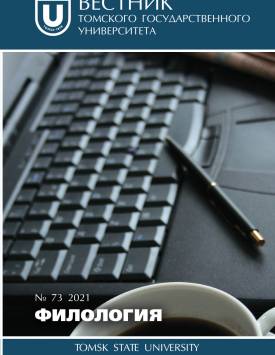Minister Pyotr Valuev Patronizes Aleksey Pisemsky: Censorship, Journalism, and a “Political Novel” in the Russian Empire of the 1860s
The article discusses a case in the history of complicated relations between Russian literature and censorship. I argue that in the 1860s at least one prominent writer unsuccessfully attempted to establish the relations of mutually profitable cooperation with political power, namely with the Ministry of Internal Affairs. Aleksey Pisemsky and the censorship department unsuccessfully tried to organize their relations according to the archaic model of literary patronage. The research is based on both archival and published sources. From Pisemsky’s point of view, patronage could become a viable alternative to increasingly radical views of the majority of influential critics and editorial officers. In 1862 his own satirical feuilletons depicting widespread corruption in Russian society were met with harsh criticism that soon transformed into a public scandal and nearly resulted in a duel. Dissatisfied with the modern public sphere centered around mostly radical periodicals, Pisemsky tried to find an alternative institution that would allow literature to free itself from the control of the “nihilistic” editorial officers and reduce the degree of confrontation with the government. In his novel The Troubled Seas (1863), Pisemsky developed the views of the high-ranked liberal bureaucrat Pyotr Valuev on the era of the “great reforms” expressed in his unpublished but widely known paper “The Thought of a Russian”. At the same time, Pisemsky attempted to both influence even the emperor himself and help the “nihilists” to avoid criminal punishment: his novel was supposed to let Alexander II understand that there was no real threat of revolution in Russia, so the people charged could be forgiven. When the novel was ready for publication, Valuev, then the minister of internal affairs, became the head of censorship and agreed to support Pisemsky. Valuev ordered the censors to violate the official rules regarding periodicals and allow the publication with no changes. The minister attempted to support and control loyal journalism, including the influential nationalistic journal Russkiy Vestnik, in which the novel was published. Probably, Valuev also praised the negative portrayal of both radical “nihilists” and blind conservatism in the novel. Pisemsky’s attempts eventually failed: by the end of the 1860s, Valuev, who already knew about real revolutionary activities, did not trust Russian writers anymore and hated his former ally Mikhail Katkov, while Pisemsky refused to submit to any editors, including Katkov. The institution of patronage was too archaic for Russian literature of the 1860s, which doomed the cooperation between Pisemsky and Valuev from its very beginning.
Keywords
Aleksey Pisemsky, Pyotr Valuev, Mikhail Katkov, censorship, Russkiy Vestnik, thick journal, history of novel, literary institutions, patronageAuthors
| Name | Organization | |
| Zubkov Kirill Yu. | High School of Economics; Institute of Russian Literature (Pushkin House) of the Russian Academy of Sciences | k_zubkov@inbox.ru |
References

Minister Pyotr Valuev Patronizes Aleksey Pisemsky: Censorship, Journalism, and a “Political Novel” in the Russian Empire of the 1860s | Vestnik Tomskogo gosudarstvennogo universiteta. Filologiya – Tomsk State University Journal of Philology. 2021. № 73. DOI: 10.17223/19986645/73/10
